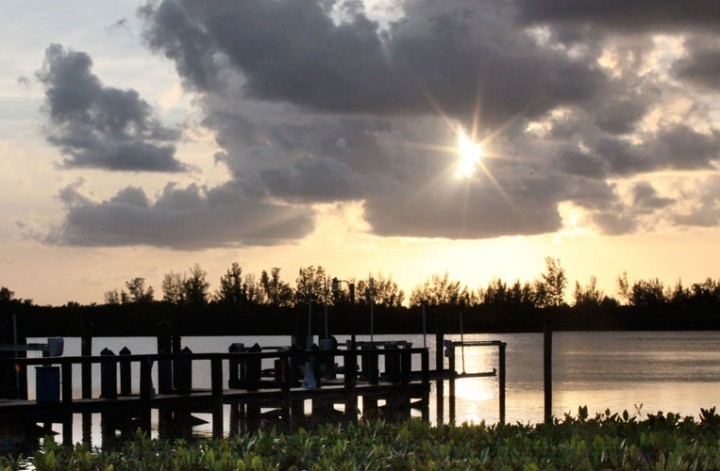
INDIAN RIVER COUNTY — In a victory for the Indian River Lagoon, the Board of County Commissioners voted unanimously Tuesday to put in place the Florida state model fertilizer ordinance to reduce nitrogen and phosphorous pollution that is choking the estuary, cutting off light, sucking up oxygen and smothering sea life.
The Commission joins the Vero Beach, Sebastian and Indian River Shores city councils in passing an ordinance regarding residential fertilizer usage.
The state model ordinance requires commercial fertilizer applicators to take a training course on best management practices to learn how apply lawn chemicals so they don’t end up in the lagoon. It mandates the use of slow release fertilizer that is less likely to run off into the waterway, restricts how close to water fertilizer can be applied and limit’s the time period when fertilizer can be applied, restricting its use during rainy periods.
Approximately a dozen people who spoke in favor of the regulation, including environmentalists and lawn-care professionals, praised the Commission as its intent to pass the ordinance became clear. Others, though, expressed anger at the Commissioners’ long delay in taking action to protect the lagoon.
Tuesday’s events came after a prolonged effort by environmentalists and municipal officials who pushed for county action to control the flow of poisonous chemicals into the estuary that is the economic and aesthetic centerpiece of the county, contributing hundreds of millions of dollars to the economy each year.
The issue was debated in Commission chambers through much of 2012, as county cities passed their ordinances and marine biologists and other concerned scientists at Harbor Branch, the Ocean Research and Conservation Association and the Pelican Island Audubon Society offered expert testimony that county regulation was needed and would be effective.
Opposition to a county ordinance was led by Commissioner Bob Solari who had maintained an ordinance would be ineffective and unenforceable. He had also said ordinances in general are damaging to the human spirit and a democratic society.
He never explained why a fertilizer ordinance based on regulations that were working well in other counties, as attested to before the Commission by officials from those counties, would be more harmful than laws governing speed limits, littering, noise in residential areas and other rules put in place for the common good.
“I can’t tell you how angry I am that you did not put the state model ordinance in place last year when you had the chance,” said Sharon Koler, one of those who showed up Tuesday to support passage of the regulation. “You didn’t do your job.”
The Commissions’ change of heart springs from several sources, including the election of Commissioner Tim Zorc, who has emerged as a champion of the lagoon, and steadily increasing public pressure for action by the county government to save the estuary, where conditions have continued to worsen, with unprecedented dolphin and manatee die-offs sounding the loudest alarm bells.
In recent months, the Commission began to take some actions to deal with the ecological collapse in the lagoon and Solari began to push a $267-million project to reverse the flow of canals that discharge water into the estuary, but he and other Commissioners continued to oppose a fertilizer regulation ordinance.
That changed this week when retiring County Attorney Alan Polackwich informed the Commission the lagoon has been designated an impaired waterway by the Florida Department of Environmental Protection, obligating the county to pass the state model ordinance, or a stricter ordinance, to reduce the amount of fertilizer runoff flowing into the estuary.
After several hours of discussion, in which members of the public urged the Commission to pass an ordinance stronger than the state model and Commissioners debated the best way to enforce the new regulations, the board voted in favor of the state-suggested legislation.
County staff will now tailor the model ordinance to Indian River County and bring it back to the Commission later this month for final passage.



